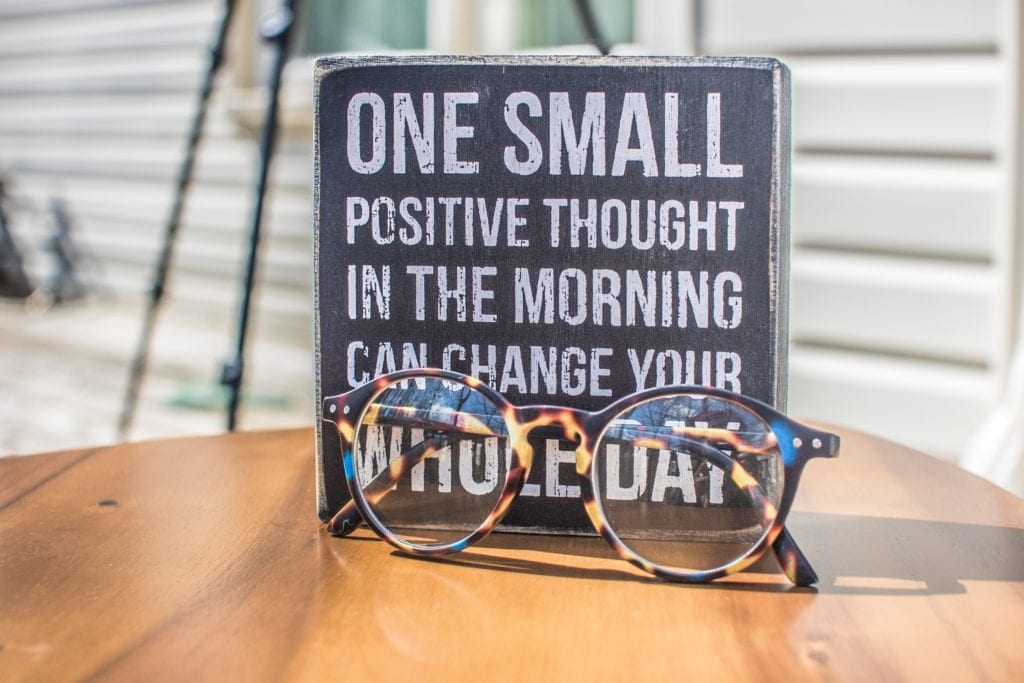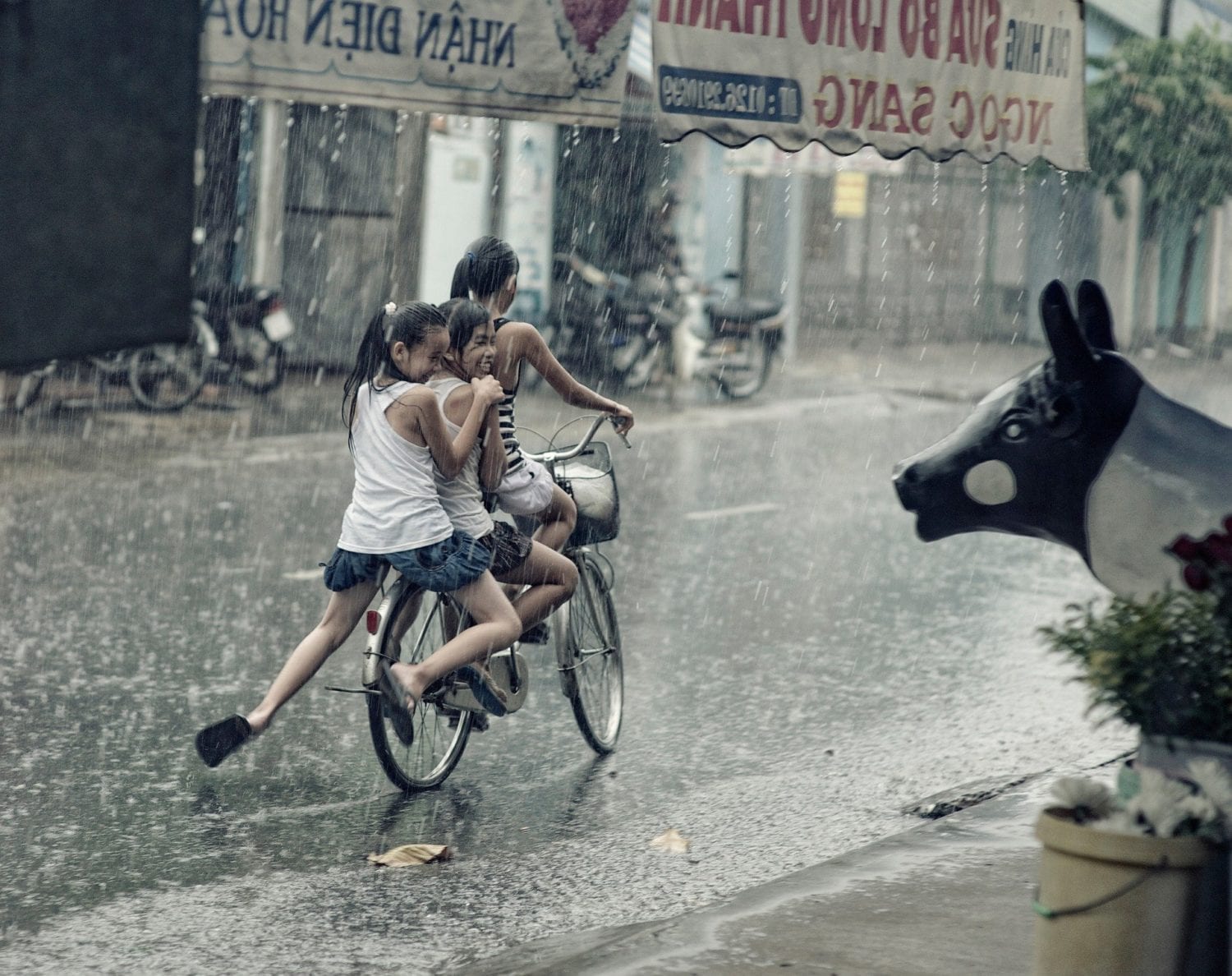It’s a scientific fact that the hormones of stress downregulate genes and create diseases and long-term effects. (…) We can think about our problems and turn on those chemicals. That means, though, that our thoughts could make us sick. So, if it’s possible that our thoughts can make us sick, is it possible that our thoughts can make us well? The answer is: absolutely yes.
Dr. Joe Dispenza
All organisms in nature can tolerate short term-stress. We have proof of this every day. In the animal world we see animals been chased by their predators and going back to grazing, strolling, sleeping as before once the chasing event is over. We humans do the same. We can experience a stressful moment, but once that is over, we go back to being our old selves.
But what happens when that unsettling, anxious, fearful experience is repeated over and over? What happens when someone who knows us well keeps on pushing our emotional buttons over and over throughout the day? And what happens when that day becomes another day and another month and another year because the person to push the buttons is someone we can’t easily get away from, such as our boss or our family? In these circumstances we turn on the stress response as we normally would do, but we can’t turn it off. When this happens, we are headed for some form of mental and/or physical illness because no organism in nature can live in an emergency more for that extended period of time.
Dr. Joe Dispenza explains that “95% of who we are, by the time we are 35 years old, is a memorised set of behaviours, emotional reactions, unconscious habits, hardwired attitudes, beliefs and perceptions, that function like a computer program”. It is almost as if most of our reactions are automated, leaving us with just a 5% of our conscious mind to think differently from the mould we have created for ourselves.
Imagine heading to the work and becoming infuriated by the number of people waiting on the train platform, arriving at work a couple of minutes later and feeling stressed over what the boss may say. These circumstances may not variate much though your week or month, but how you experience and respond to them is up to you. According to Meik Wiking, CEO of the Happiness Research Institute in Copenhagen and author of ‘The art of Making Memories‘, “satisfaction with life – and happiness – depends on whether we have, or create, a positive narrative of our life.” The platform may well be full but it may have no effect whatsoever on you reading a book. You may well arrive at work a couple of minutes later but your boss may say nothing about it.
In the end we all want similar things: we want to be healthy and happy. Yet, that 95% holds us back to our old ways. We know we are getting angry over something silly, we can feel we are being affected by something that should not affect us and we want to behave differently, but that 95% is controlling how we respond to it by putting the automatic gear and following in the same old ways. Full platform = annoyance = anxiety = stress.
Sleeping through habits

A habit is a redundant set of automatic, unconscious, set of thoughts, behaviours, and emotions that is acquired though repetition.
Dr. Joe Dispenza
Habits are a bummer to change!
This is because we are used to them and they are comforting. They form routines and routines are like an old comfy pair of shoes.
A habit wakes up with us in the morning. As we wake up, we think about what is ahead. If we have worries, this is the time they will wake up too. But the moment we recall those worries we are effectively linking them to memories and memories are in the past. Simply put, we recall our worries based on what happened in the past. We then may start to feel unhappy, sad, and even in pain. When we do this, we allow the past to shape the future. In other words, we are heading for another bad day. In the previous example, the people on the platform will undoubtedly annoy us, and our boss will almost certainly fire us this time!
When people are in a positive frame of mind are more likely to collaborate & problem-solve (instead of fight & resist). The positive impact of a smile on your face or in your voice, applies to the smile-er as much as the smile-ee.
Chris Voss – ‘Never split the difference‘
Furthermore, as we go through a series of routine behaviours, such as waking up on the same side of the bed, grabbing a mochaccino at the cafeteria next door to the office, grab lunch at the same place, catch up with the same people after work…etc… we end up doing the same things, seeing the same people and with that having the same emotional buttons pushed. Dr. Joe Dispenza continues “most people then wait for a trauma, a crisis, a disease, a diagnosis, a loss to make up their mind to change. But why wait? You can learn and change in a state of pain and suffering or you can learn to change in a state of joy and inspiration.”
Switching from victim to creator!

There is a huge difference between living as a victim and living as a creator.
As a victim everything that happens to us is because someone or something did something. Sounds familiar? We all have a friend or two who always finds excuses for anything that happens to them including spilling the coffee because they have been clumsy! People who live like a victim think they are this way because of a person or something or an experience, made them think and feel that way! It’s only when we switch that around to become the creator of our world that we become empowered and start shaping the life we want! We truly become the creators of our reality.
To do this, it’s good practice to bring yourself back to the present moment and remind yourself that you have a will, you have a choice on how you intend to handle whatever is in front of you.
“We can’t choose what experiences come our way, but we can choose how we deal with them.”
Jaap Bressers
When you become aware of your habits and emotions coming back, challenge them. Do you really need to get angry at the morning rush every single morning? Is it really affecting you, since it happens every morning and you prepare for it and survive it every day? When you notice your emotional pattern returning, focus on the present. In the past it may have made you feel anxious but in the present, are you okay? Can you deal with it in a fresh new way? Break that pattern, do it over and over and over and over again as you would do if you were training for something, and changes will come. “You can free yourself from those emotions that keep us chained to a familiar past.” (Dr. Joe Dispenza)
Habit vs Temperament vs Personality trait

The difference between habits, temperament and personality trait is explained by Dr. Joe Dispenza really well.
Long term memories are created from very high emotional experiences. Our mind takes like a snapshot of that moment, that experience, that emotion. However, some people retain that emotion for longer that it’s needed. It may last a few days. That is what is called a mood. For example, “I feel like this because 3 days ago this happened to me and I am having one long emotional reaction.”
If you keep that same emotional reaction for weeks or month then you get what is called a temperament.
Now, and this is where it gets interesting…if you keep that going on for years, that is what becomes a personality trait. That is why is so important to refrain yourself to carry negative emotions longer than needed. People tend to recall that negative memory because the emotion was so intense there are being told to pay attention in case it happens again and curiously enough people have a tendency to anticipate the worst-case scenario based on past experiences. This, however, leads us to continually live with stress. With fear. With negativity. Living in the past. Not in the present. Not taking charge. Remind yourself we cannot predict the future!
In ‘The Magic of Thinking Big‘ David Schwartz suggests making your attitudes your allies. “In everything you do, life it up. Enthusiasm shows through in everything you do or say. Life up your handshake, your smile, and your talk” & you’ll feel great too!
Make a change!

If you process the same thoughts every day you have no way of moving forward and you will continue to have the same thoughts which will lead to the same choices, the same behaviours, the same experiences finally leading you to the same emotions.
It’s very important to re-evaluate our emotions and behaviours from time to time and challenge their existence and residence within ourselves, exactly the same way as we do with our core beliefs.
We learn the most about ourselves and others when we are uncomfortable, so be ready: changing our habits is not going to be easy!
The hardest part about change is not making the same choices you made the day before.
Dr. Joe Dispenza
Thoughts like “it’s too much, I can’t do it, I’m not worthy, I’m not gonna make it, I didn’t do it right before and I am going to make the same mistake” are very common but if you give in you will fall back to the same choices, the same experiences, and the same emotions.
You are the creator of your choices and the sculptor of your life. So, what thoughts do you want to fire? What behaviours do you want to create? The more you train yourself to think differently and to become your best self, and the more you will become just that!
Things to remember through difficult times

From time to time we all go through periods of feeling stuck, frustrated, sad and stressed. However, finding a way to emerge from the other side of these experiences is vital to the proliferation of our existence.
Here are some thought-provoking things to remember when you are going through tough times:
- Everything can and will change. Nothing is permanent. Not even your worst-case scenario!
- You are more resilient than you think! The proof? You’ve overcome challenges and obstacles before. Take that shitty time!
- It’s a learning experience and you learn and grow the most through change, discomfort, and difficulty. It may suck right now, but you will come back wiser and stronger.
- “You can’t always get what you want, but if you try sometimes you just might find you get what you need.” (Rolling Stones – Song: You Can’t Always Get What You Want) Not getting what you want may actually be a true blessing in disguise.
- Life is full of ups and downs. The ride is long and bumpy so don’t take it too seriously and enjoy it. Even through rubbish times you are allowed to have some fun!
- Truly great things generally take time to achieve or arrive. Rome wasn’t built in a day!
- Being kind to yourself is the best medicine! If you don’t learn to love yourself why should others? You are worthy and you are important!
- You are not alone. Asking for help is not a sign of weakness.
- Other people’s negativity isn’t worth worrying about. Whatever the reason, be it they are worried for you or they are jealous of you, in large doses it is toxic!
- Stop comparing yourself to others, it will only make you feel ugly or less worthy! Life is not a race. We all start at different starting points. “Sometimes you’re ahead, sometimes you’re behind. The race is long and in the end, it’s only with yourself” (Baz Luhrmann – “Everybody’s Free”)
- Even in the toughest of times don’t forget to express gratitude and to be compassionate & understanding towards yourself and others.
- There is always hope and there is always, always something to be grateful for.



